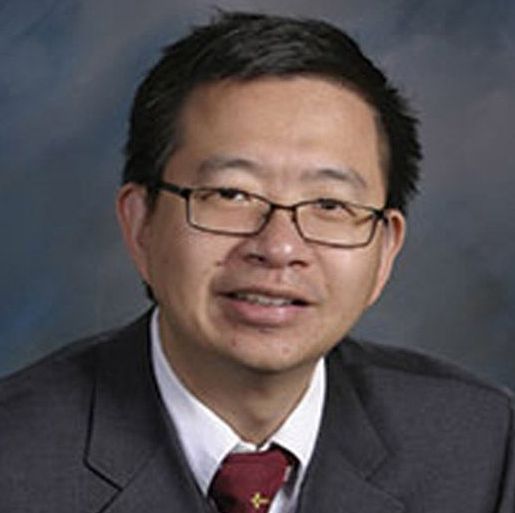In this episode, we explore the victim mindset. It's easy to fall into a pattern of complaining about our circumstances. Many of our colleagues jump in and fan the flames of discontent.
[This topic was first addressed in Physicians: Stop Complaining and Start Leading in July 2017 – VPE].
But when we find ourselves wallowing in victimhood, we ought to shift our perspective and make a commitment to lead instead.

Dr. Serafino Garella's Community Health Clinic
First – A Physician Podcast Review
This week I want to highlight the White Coat Investor Podcast. Presented by Dr. Jim Dahle, the podcast is a spin-off of the longstanding, ground-breaking blog of the same name.
The podcast was started in January 2017. It presents much of the same high-value, no-nonsense information to help physicians avoid financial blunders and become stewards of their own finances.
To be a bit more specific, according to the notes introducing the podcast, it is intended to:
- Help high-income professionals (particularly those who wear the white coat) get a fair shake on Wall Street;
- Fulfill [Jim Dahle’s] entrepreneurial spirit (i.e. build something cool and make a few bucks doing it);
- Connect high income professionals who need professional financial help with the good guys in the financial services industry.
The podcast is very engaging. Dahle has been writing and interacting with his readers for seven years. He’s very clear about their questions and concerns. And he provides actionable advice in every episode.

As in his blog and his book, he addresses every financial topic imaginable, from saving and investing to insurance; from pension and profit-sharing plans to taxes and social security. And it’s all presented with the unique perspective of a physician.
It’s especially reassuring to hear about the stupid financial mistakes we sometimes make, and that they can be overcome by following the simple principles he espouses.
I encourage you to give the podcast a listen. You can find it by looking for White Coat Investor on iTunes and on your smart phone using your favorite podcast app. Or visit the website at whitecoatinvestor.com.
Discard the Victim Mindset and Start to Lead
I'm intrigued by the number of articles written about the frustrations of medical practice. It makes for good reading because it resonates with many physicians.
From blog posts about maintenance of certification, and regulations that are destroying the practice of medicine, to articles on KevinMD about burnout, physicians are not shy about complaining.
If you stop by any hospital doctors' lounge, you'll certainly hear a lot of complaining. We complain about electronic medical records, complicated billing requirements, regulations, lawsuits, and the latest challenges to running a medical practice or working for a large institution.
Complaints Are Often Valid
Don’t get me wrong. I agree that there’s much to complain about. The system we find ourselves working in is full of frustrating tasks that don’t necessarily enhance patient care. It does not reflect the idealized career that many of us envisioned when we sought to enter medical school.
And burnout is a growing phenomenon that we’ve discussed here before.
But there comes a time when we ought to stop complaining and start to lead.
There are numerous examples of physicians who have stepped up and chosen to lead. I'll talk about some of them later. But for many of us, complaining has become part of our daily routine, like it’s a way of life.
But complaining without taking action is a characteristic of the victim mindset. And what we need in healthcare is more leadership, not more victims.

The best leaders jump into action and skip the whining part completely. They don’t even pause to complain.
Victims Are Powerless
I’m concerned that some of my colleagues are entering a cycle of victimhood and powerlessness.
When we complain without offering a solution, we’re often seen as part of the problem. In fact, it’s been said that the only thing complaining does is convince other people that you're not in control.
Victimhood is a mindset that we should resist. Rather than fall into the victim role, we ought to remember a couple of things about our potential response to these external realities.
- First, while we often cannot control what is happening around us, we can control the way we think about our circumstances and the way we respond to our circumstances.
- And, second, our influence often extends well beyond what we can control.
As discussed with Kernan Manion in Episode 7, burnout is not due to physician weakness or lack of resilience. It’s an occupational stress syndrome. The solution is to address the root cause and change the workplace. And who better to do that than physicians?
Two Options
The way I look at it, there are only two viable choices for those unhappy with their current career situation. Both options involve stepping away from the victim mindset and taking action. In other words, behaving as a leader.
- The first option is to get out. There's nothing wrong with that. If medicine is not your calling, if having one on one interactions on a daily basis with patients is not what you thought it would be, then it makes perfect sense to shift to another career. That's one of the reasons I started this podcast. I see absolutely no problem with leaving an unfulfilling career and shifting into one that's much more meaningful and satisfying.
- The second option is to change the system. I'm not talking about changing the, “healthcare system,” of the United States, just the local version of that, the way it's managed and provided in your own clinic, group, or hospital.
There are many physicians who have done just that. They've identified a problem and are attempting to solve it. There is no shortage of possible problems for physician leaders to solve.
Examples
- Pamela Wible, a family physician, has taken on the issue of physician depression and suicide. She discovered that the physician suicide rate is double the rate of suicide in non-physicians in this country. In her blog, books and public appearances, she has exposed the culture of bullying, hazing, and abuse in medical education that leads to depression and the loss of countless medical students and doctors to suicide.
- Atul Gawande, a surgeon, has taken on the issue of patient safety. Like many of us, having personally witnessed preventable medical errors with horrendous results, he was inspired to speak and write about this issue. Through his efforts, physicians and the public have recognized the need for a more aggressive approach to ensuring safety in medicine.
- Serafino Garella, a nephrologist, founded the largest free medical clinic in the US. After personally interviewing people in several Chicago neighborhoods in the early 1990s, he found that nearly half had minimal access to care. He led the drive to address this need by opening a free clinic in 1993. His Community Health Clinic now provides 15,000 medical and dental visits a year, all at no charge.
- Robert Wachter, an internist, helped start the hospitalist movement in the United States. He recognized the negative effects of trying to balance a busy outpatient practice with the increasingly complex care of hospitalized patients and helped create a solution.
- Howard Maron, a formal Seattle Supersonics team physician, founded a clinic that introduced what became known as concierge medicine. He was responding to the overwhelming paperwork, lack of control, rushed visits and unhappy patients he and his colleagues were encountering. Whether you agree with this approach to health care or not, Maron definitely demonstrated his ability to take action, rather than simply lament the challenges of medical practice. Following his lead, many doctors and patients now enjoy the personalized approach that this type of practice provides. Needless to say, physicians in this kind of practice rarely complain about burnout.
Medical group and hospital physician CEOs are also good examples of those who have decided to pursue leadership roles to address healthcare delivery challenges. In general, these organizations enjoy much better physician engagement and lower levels of doctor dissatisfaction.
5 Reasons to Discard the Victim Mindset and Start to Lead
Given what I’ve described so far, let me list the 5 BIG reasons that I believe we should stop complaining and start to lead.
1. Eliminate the negative internal dialogue for our own good.
Complaining is a form of negative self-talk. It leads to deeper frustration and despair. We think of complaining as the result of unhappy circumstances, but the field of positive psychology has demonstrated that negative self-talk also intensifies unhappiness, poor health and anxiety.
By eliminating the complaining and replacing it with positive self-talk, and taking action, our optimism and vitality improve. Our health depends on stopping this negative self-talk, and shifting our perspective for our own good.

2. Inspire our families.
The complaining is a drag on interpersonal relationships. It sets a poor example for our children. Complaining creates tension and establishes a negative atmosphere lacking in joy.
As a parent, it is difficult to engender hope and optimism in our children when we’re personally hopeless and resigned. And its exhausting for those around us.
3. Improve physician engagement.
I believe we owe it to our colleagues. Physician engagement is at an all-time low in many institutions.
What the heck is engagement anyway? It’s a sense of belonging, and wanting to participate and support our teams, groups and organizations. Physicians who are burned out and disengaged become isolated emotionally, physically and mentally, as we discussed in Episode 7.
We owe it to the profession and our colleagues to try to improve their engagement. By taking action and improving our circumstances, we can serve as a role model, we can improve our work environment and find solutions for burnout and lack of engagement. This will directly impact our colleagues.
4. Elevate our teams.
By creating constructive solutions and taking action to mobilize others, we'll be seen as leaders. It’ll improve our standing in our work environment. Our influence will spread to the nurses, radiology technicians, pharmacists and other team members who’ll be inspired by our efforts.
Then hospital and medical group executives will welcome our input to solving problems, rather than seeing us as whiners. Remember, leaders may complain but they’ll bring a potential solution to the table when they have a complaint or a concern.
5. Promote healthy communities.
Developing a meaningful calling and devoting ourselves to leadership will improve the effectiveness of our organizations, and that will benefit our community.
These benefits might occur in a very obvious way, such as by opening a free medical clinic. But our leadership may have an impact in a more indirect way, by improving the quality and safety of the care of our patients. Healthy, engaged physicians, working in optimistic and motivated teams are better able to meet medical needs of a community. The care provided and the outcomes obtained are so much better.
Summing Up
Those are the FIVE reasons to stop complaining and start leading.
In summary they are: 1. For ourselves, eliminating the negative self-talk and improving our personal wellbeing; 2. For our families, to be a better role model and positive influence; 3. To engage and improve the situation for our physician colleagues; 4. To improve our teams and elevate their performance; and, 5. To better serve our community.
The five reasons apply even if we’re leading ourselves to pursue a new career.
The next time you catch yourself complaining, ask yourself these questions:
- What can I do to solve this problem?
- What am I doing to change my circumstances so that I don’t remain a victim, but rather take control of my life and make a difference to myself, my family, my teams and my community?
- What am I doing to shift to a new career that will be more meaningful and satisfying?
I hope you've enjoyed this episode of Physician Non-Clinical Careers. As we've discussed in previous episodes, it's our own procrastination and victim mindset that stops us from leaving an untenable work situation. I believe we need to stop being victims. We need to either change what we're doing, or take control to make our circumstances better.
Preparing for 2018
We're nearing the end of 2017; the publication date of this episode is December 11. And many of us are thinking about our goals for next year.
As I mentioned in the previous episode, I’m helping to promote a program called, “5 Days to Your Best Year Ever,” by Michael Hyatt. It's a formal exercise that will help create actionable goals for next year and produce results that’ll exceed your expectations.
I'm looking forward to participating in this program for the first time. I’m going to join the free webinar next week, and then sign up for the program itself. My wife, Kay, and I are going to work through the program and create a set of goals for 2018.
I’m encouraging you to participate with me. If you're interested, you can go to BEST YEAR EVER. You'll find information there about the webinars and later about the program itself. Or just sign up for the webinar here.
For those of you that register for the course, “5 Days to Your Best Year Ever,” I've created a private Facebook Group, so that we can all work through the program together. There'll be more information about that at the web page, BEST YEAR EVER.
Next week, I plan to publish another interview with a successful physician with a very interesting career path. Please subscribe to the podcast on iTunes so you don’t miss it. Or sign up for my newsletter here:
[embed_popupally_pro popup_id=”3″]
Resources
Resources are linked in the content above.
Right click here and “Save As” to download this podcast episode to your computer.
The easiest ways to listen: vitalpe.net/itunes or vitalpe.net/stitcher
If you'd like to listen to the premier episode and show notes, you can find it here: Getting Acquainted with Physician NonClinical Careers Podcast – 001







Leave A Comment
You must be logged in to post a comment.